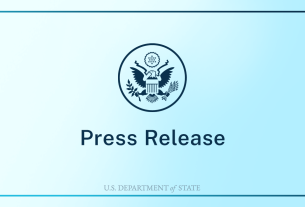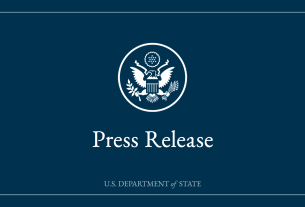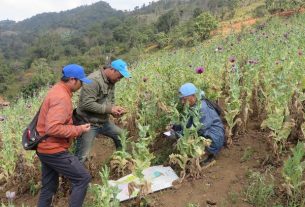Baku, Azerbaijan / Washington — Human rights organizations and Western governments have condemned the recent detention of Rufat Safarov, a prominent Azerbaijani human rights advocate, calling for his immediate release. Safarov, the head of the Defense Line human rights organization, was arrested on Tuesday on charges of fraud and hooliganism. He was placed in pretrial detention for four months.
Amnesty International has decried the charges as politically motivated, arguing that the arrest is part of a broader pattern of suppression of dissent in Azerbaijan. In a statement, the organization described Safarov’s detention as an attempt to silence his critical voice, further underscoring the government’s ongoing crackdown on civil society.
Safarov, a former prosecutor, had been scheduled to travel to the United States in two days to receive the Human Rights Defender of the Year award. In a social media statement, Safarov suggested that his detention was linked to his nomination for the prestigious award and his work defending human rights.
“I express my deep gratitude to U.S. Ambassador Mark Libby and U.S. Secretary of State Antony Blinken for supporting my candidacy,” he wrote, referring to the recognition he was to receive.
U.S. Government’s Response
U.S. lawmakers, including Senator Ben Cardin, chair of the Senate Foreign Relations Committee, have expressed their outrage over Safarov’s arrest. Cardin emphasized that the Azerbaijani government’s actions were a direct attempt to undermine Safarov’s advocacy, calling for his immediate release. “His fight for justice transcends prison walls,” Cardin stated in a post on X (formerly Twitter).
Ambassador Mark Libby, speaking at an event in Baku, also urged the Azerbaijani authorities to release those imprisoned for political reasons and to adhere to their international human rights obligations. He was joined by ambassadors from the U.K., the EU, and Switzerland in making a unified call for Safarov’s release.
Azerbaijani Government’s Response
The Azerbaijani Ministry of Foreign Affairs reacted strongly to international criticisms, rejecting claims that Safarov’s arrest was politically motivated. In a statement, the ministry accused Western diplomats of interfering with Azerbaijan’s judicial independence, framing their remarks as an unwarranted attempt to influence the country’s legal system.
Furthermore, Bahruz Maharramov, a member of the Azerbaijani Parliament, defended Safarov’s detention, asserting that the charges and legal process adhered to procedural requirements and the law. Maharramov suggested that an individual’s political beliefs or affiliations should not shield them from legal responsibility.
A History of Political Persecution
Safarov’s detention is part of a troubling pattern of repression against human rights defenders in Azerbaijan. His activism has often put him at odds with the government. After resigning from his position at the Zardab District Prosecutor’s Office in 2015, Safarov accused Azerbaijani authorities of widespread corruption and human rights abuses. In 2016, he was imprisoned on charges of accepting bribes, charges which he denied. He was later pardoned and released in 2019 by President Ilham Aliyev.
International human rights advocates, including those from the Parliamentary Assembly of the Council of Europe, have pointed out that Safarov’s arrest is another example of the Azerbaijani government’s ongoing efforts to stifle dissent and limit freedom of expression. Thorhildur Sunna Aevarsdottir and Emanuelis Zingeris, rapporteurs at the Parliamentary Assembly, expressed concern that this detention marks the latest in a series of attempts to target those defending human rights and fundamental freedoms in Azerbaijan.
Domestic Criticism
On the domestic front, opposition leaders have also condemned the arrest. Isa Gambar, head of the Musavat Party, called the charges against Safarov politically motivated and intended to disrupt his work. “This is unacceptable,” Gambar told VOA, urging the release of Safarov and all political prisoners in the country.
Azer Gasimli, head of Azerbaijan’s Institute of Political Management, suggested that the government’s actions reflect a broader campaign to suppress civil society. He noted that only a handful of human rights defenders remain free in the country, with the government targeting those who speak out against systemic issues.
Conclusion
Rufat Safarov’s detention has sparked widespread international condemnation, highlighting the growing concerns about human rights in Azerbaijan. As calls for his release continue to gain momentum, the case serves as another reminder of the challenges faced by human rights defenders in the country and the increasing risks they face in standing up for justice. Safarov’s arrest comes at a time when Azerbaijan is facing growing scrutiny over its treatment of dissent and its commitment to fundamental human rights.



